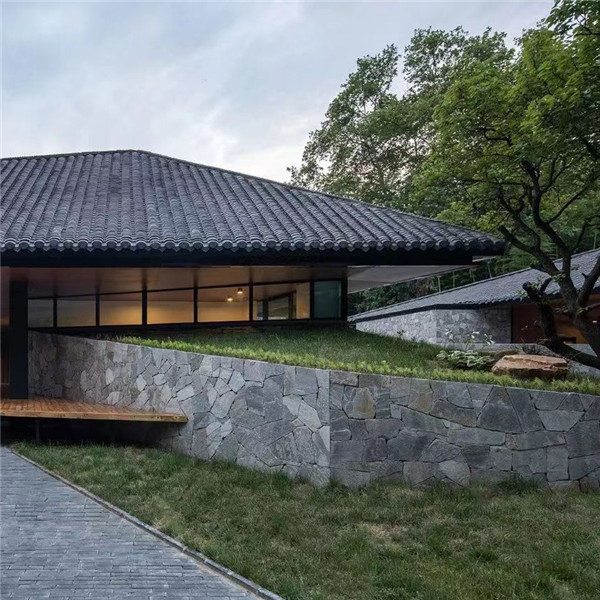Introduction:
When it comes to enhancing the aesthetic appeal and durability of a building, both stone veneer and brick are popular choices among homeowners and builders. These two materials offer a timeless and classic look that can elevate the overall appearance of any structure. However, choosing between stone veneer and brick can be a daunting task due to the various factors that need to be considered. In this article, we will delve deep into the characteristics, benefits, drawbacks, and considerations of stone veneer and brick to help you make an informed decision.
Characteristics of Stone Veneer:
Stone veneer is a thin layer of natural or manufactured stone that is used to mimic the look of traditional stone masonry. It is lighter and more flexible than natural stone, making it easier to install and more cost-effective. Stone veneer comes in a variety of colors, textures, and shapes, allowing for greater design flexibility. Some common types of stone veneer include fieldstone, ledge stone, and river rock.
Benefits of Stone Veneer:
1. Aesthetic Appeal: Stone veneer adds a touch of elegance and sophistication to any building facade. It can enhance the curb appeal of a home and increase its resale value.
2. Lightweight: Stone veneer is lighter than natural stone, making it easier to handle and install. This can result in cost savings on labor and transportation.
3. Durability: Stone veneer is resistant to fire, rot, and insect damage, making it a durable option for exterior cladding.
4. Low Maintenance: Stone veneer requires minimal maintenance and can be easily cleaned with water and mild detergent.
Drawbacks of Stone Veneer:
1. Cost: Stone veneer can be more expensive than brick, especially if you opt for high-quality natural stone veneer.
2. Installation: While stone veneer is lighter than natural stone, it still requires skilled labor for installation. url can lead to issues such as water infiltration and cracking.
3. Limited Insulation: Stone veneer provides minimal insulation compared to brick, which can impact the energy efficiency of a building.
Characteristics of Brick:
Brick is a classic building material made from clay that has been fired in a kiln. It is known for its durability, versatility, and timeless appeal. Bricks come in various colors, sizes, and textures, allowing for endless design possibilities. Common types of bricks include common brick, face brick, and engineering brick.
Benefits of Brick:
1. Durability: Brick is a highly durable material that can withstand harsh weather conditions, fire, and pests. It has a long lifespan and requires minimal maintenance.
2. Insulation: Brick provides excellent thermal insulation, helping to regulate indoor temperatures and reduce energy costs.
3. Fire Resistance: Brick is non-combustible and offers superior fire resistance compared to other building materials.
4. Sustainability: Bricks are made from natural materials and can be recycled, making them an eco-friendly choice for sustainable construction.
Drawbacks of Brick:
1. Weight: Brick is heavier than stone veneer, which can increase labor and transportation costs during installation.
2. Limited Design Options: While bricks come in various colors and textures, they may not offer the same level of design flexibility as stone veneer.
3. Cost: While brick is generally more affordable than natural stone veneer, high-quality bricks can be expensive.
Considerations for Choosing Between Stone Veneer and Brick:
1. Budget: Consider your budget and weigh the initial cost of materials and installation for stone veneer and brick.
2. Design Preferences: Think about the architectural style of your home and the look you want to achieve. Stone veneer may be better suited for a rustic or natural aesthetic, while brick is more versatile and can complement a range of design styles.
3. Maintenance: Consider the long-term maintenance requirements of stone veneer and brick. While both materials are durable, stone veneer may require more frequent cleaning and sealing.
4. Climate: Take into account the climate of your region and choose a material that can withstand the local weather conditions. Brick is known for its thermal mass and insulation properties, making it a good choice for cold climates.

Conclusion:
In conclusion, both stone veneer and brick are excellent choices for enhancing the beauty and durability of a building. Each material has its own unique characteristics, benefits, and drawbacks that should be carefully considered before making a decision. Whether you opt for the timeless charm of brick or the natural elegance of stone veneer, both materials have the potential to elevate the aesthetic appeal of your home. By weighing factors such as budget, design preferences, maintenance, and climate, you can make an informed choice that suits your needs and complements your style.
